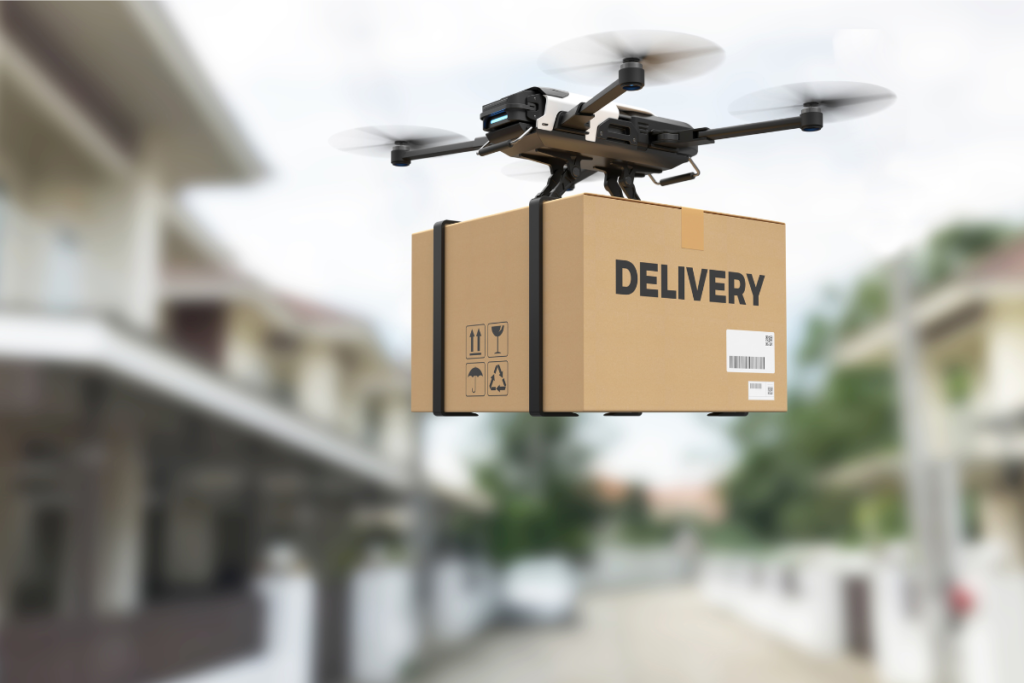
In today’s fast-paced world of modern logistics, where every minute counts, efficiency and accuracy are the lifelines of success. Picture this: a package ordered online arrives at your doorstep precisely when promised, and you can track its journey in real time. This seamless movement of goods and information has become not just a convenience but a necessity for businesses striving to meet customer demands and stay competitive. And the driving force behind this logistics revolution? Technology!
In this blog post, we will explore the significance of technology in modern logistics and how it’s impacting the various aspects of the industry.
1. Enhanced Visibility and Tracking
One of the most significant contributions of technology to logistics is the enhancement of visibility and tracking. With the advent of GPS, RFID, and IoT (Internet of Things) technologies, businesses can now track the movement of goods in real time.
This real-time visibility allows logistics managers to optimize routes, anticipate delays, and respond to disruptions promptly. It also provides customers with the ability to track their shipments, leading to greater transparency and improved customer satisfaction.
2. Automation and Robotics
Automation and robotics have transformed warehousing and distribution centres. Automated picking and packing systems, robotic forklifts, and autonomous vehicles are just a few examples of how technology has increased efficiency and reduced labour costs.
These technologies not only speed up operations but also reduce the risk of human error. Furthermore, automation enables round-the-clock operations, which is especially crucial for e-commerce businesses striving to meet the demands of an always-on global market.
3. Predictive Analytics
Modern logistics depends heavily on predictive algorithms and data analytics. By analyzing historical data and real-time information, logistics companies can make informed decisions about inventory management, demand forecasting, and supply chain optimization.
Predictive analytics can identify trends and potential issues, allowing businesses to address challenges before they escalate proactively. This data-driven approach helps in cost reduction, inventory optimization, and better decision-making.

4. Supply Chain Management Software
Sophisticated supply chain management (SCM) software has become a cornerstone of modern logistics. These systems offer end-to-end visibility and control over the supply chain, enabling businesses to monitor inventory levels, manage orders, and optimize logistics processes.
SCM software also integrates with other enterprise systems, such as customer relationship management (CRM) and enterprise resource planning (ERP), creating a seamless flow of information across the organization.
5. E-commerce and Last-Mile Delivery
The rise of e-commerce has had a profound impact on logistics. Technology has facilitated the growth of online retail by enabling secure and efficient online transactions, inventory management, and order fulfilment.
Additionally, last-mile delivery has become a focal point for logistics innovation. Drones, autonomous delivery vehicles, and route optimization algorithms are all being used to address the challenges of delivering packages to customers’ doorsteps quickly and cost-effectively.

6. Sustainability Initiatives
Technology is also playing a pivotal role in addressing environmental concerns in logistics. Electric and hybrid vehicles, alternative fuels, and optimized route planning algorithms help reduce the carbon footprint of transportation operations.
Additionally, data analytics and monitoring systems enable companies to track their environmental impact and implement sustainable practices.
7. Blockchain in the Supply Chain
Blockchain technology is gaining traction in logistics due to its ability to create secure and transparent digital ledgers. It can be used to track the provenance of products, authenticate documents, and streamline transactions between multiple parties in the supply chain.
By ensuring data integrity and reducing fraud, blockchain enhances trust and accountability within the logistics ecosystem.

8. Big Data and Machine Learning
The vast amount of data generated in logistics can be harnessed through big data analytics and machine learning algorithms. These technologies enable companies to analyze historical and real-time data to optimize inventory levels, predict equipment maintenance needs, and refine supply chain strategies. Machine learning can also help in route optimization, making deliveries more efficient and cost-effective.
9. Cybersecurity in Logistics
With the increasing reliance on digital technologies, logistics companies must prioritize cybersecurity. Protecting sensitive data and ensuring the integrity of systems is crucial.
Advanced cybersecurity measures, including encryption, intrusion detection systems, and regular security audits, are essential to safeguard against cyber threats that can disrupt operations and compromise customer trust.

10. The Human Element
Despite the rise of automation and technology, the human element remains vital in logistics. Skilled workers are needed to operate, maintain, and oversee the technology-driven processes.
Additionally, effective communication and collaboration among logistics professionals are essential for successful supply chain management, even in the digital age.
Axe BPO: Your Trusted Logistics Partner
As the logistics landscape evolves with technology, having a trusted partner like Axe BPO can make all the difference. Axe BPO specializes in providing tailored logistics and supply chain solutions that leverage the latest technological advancements. With a track record of excellence, Axe BPO can help businesses navigate the complexities of modern logistics, from enhancing visibility to optimizing supply chain operations.
Our team of experts understands the unique challenges faced by businesses in today’s logistics environment. They work closely with you to develop strategies that maximize efficiency, reduce costs, and drive growth. Whether it’s implementing cutting-edge technology or providing strategic guidance, we at Axe BPO are committed to delivering results that are beyond your expectations.
Conclusion
In today’s highly competitive business environment, the role of technology in modern logistics cannot be overstated. It’s not just about staying in the game; it’s about staying ahead of the game. As mentioned throughout this article, technology has reshaped the logistics landscape in remarkable ways, creating both challenges and opportunities for businesses.
But you don’t have to navigate this transformation alone. You have a trusted partner ready to help you harness the full potential of technology in logistics: Axe BPO. Our commitment to innovation and excellence is backed by a track record of success. We specialize in providing tailored logistics and supply chain solutions that leverage the latest technological advancements.

